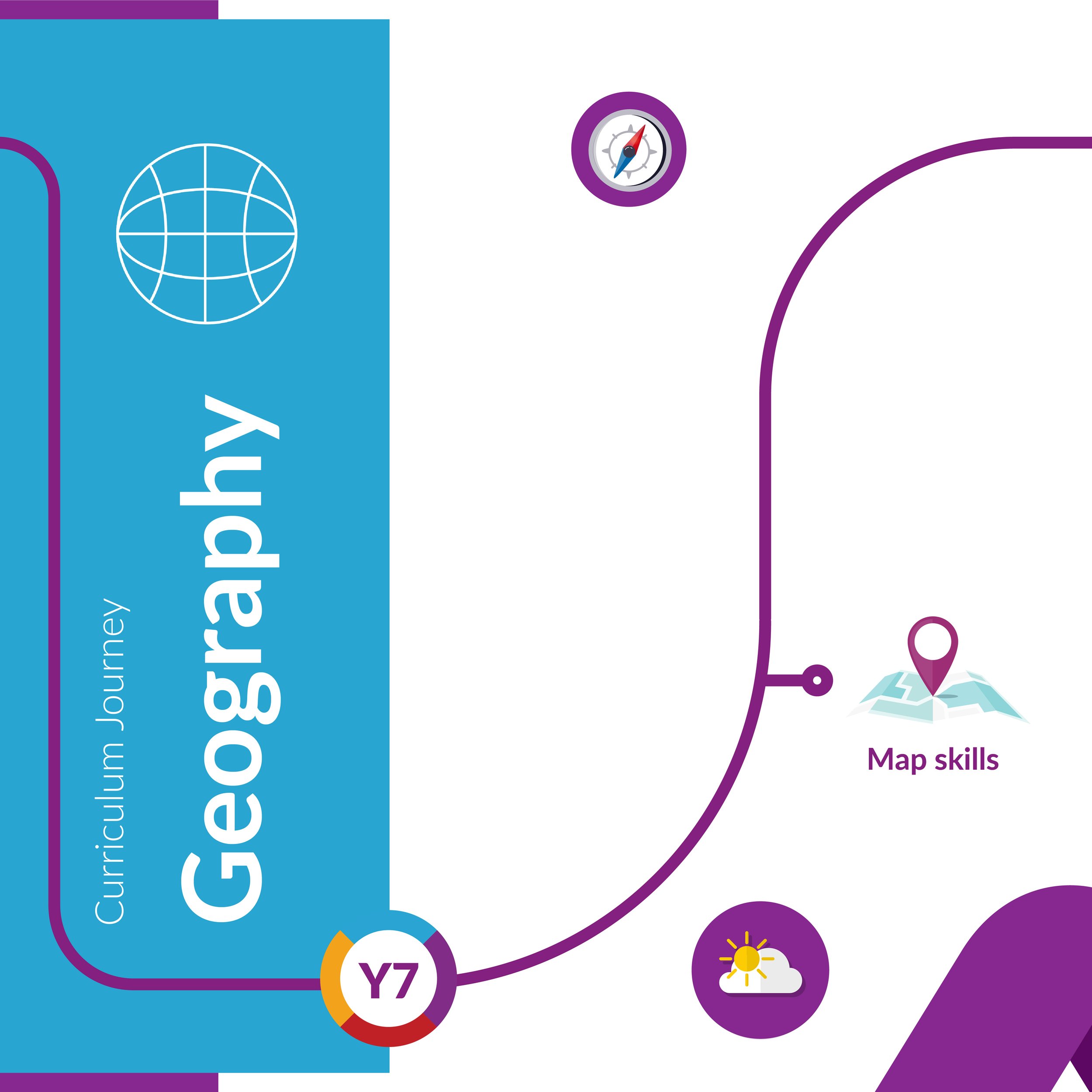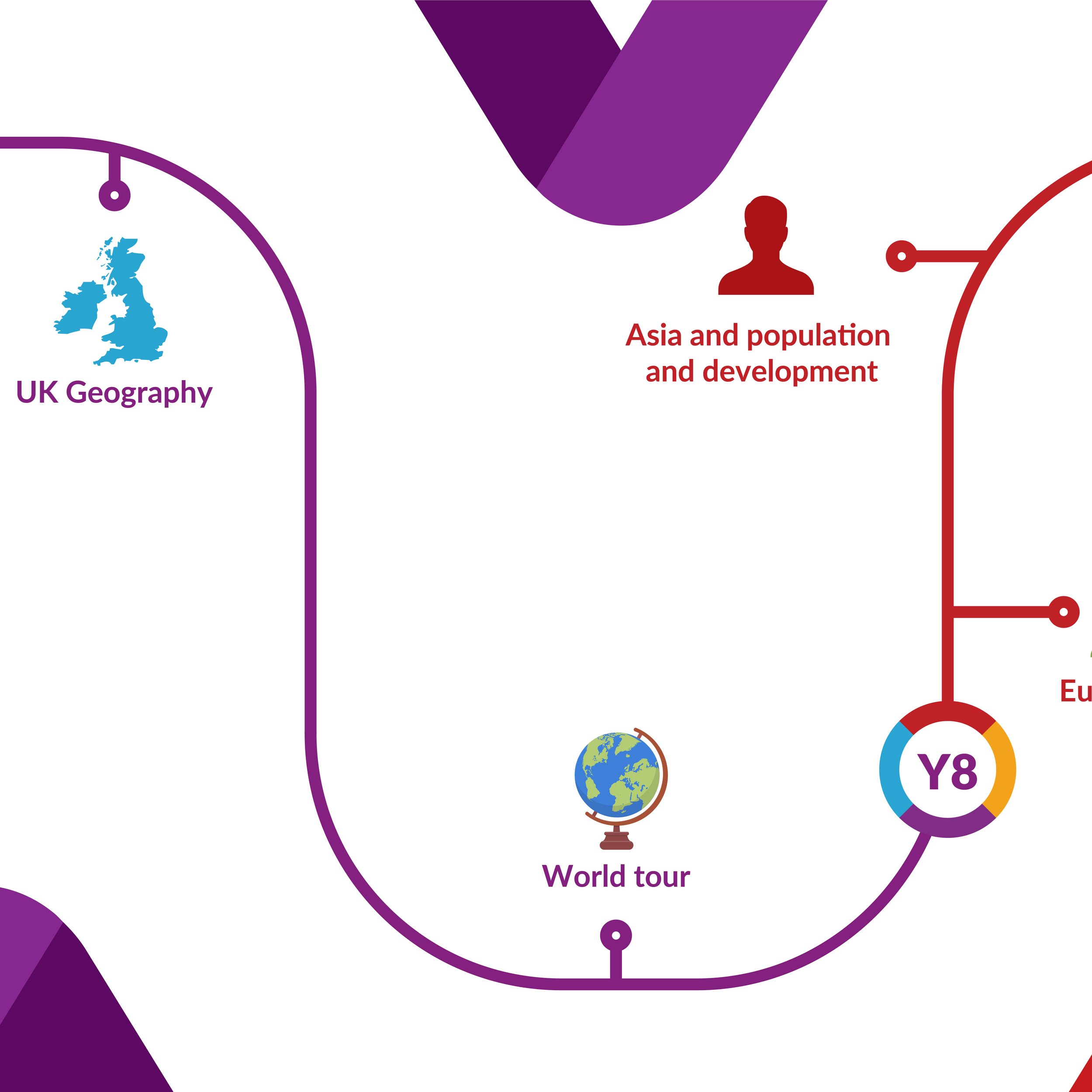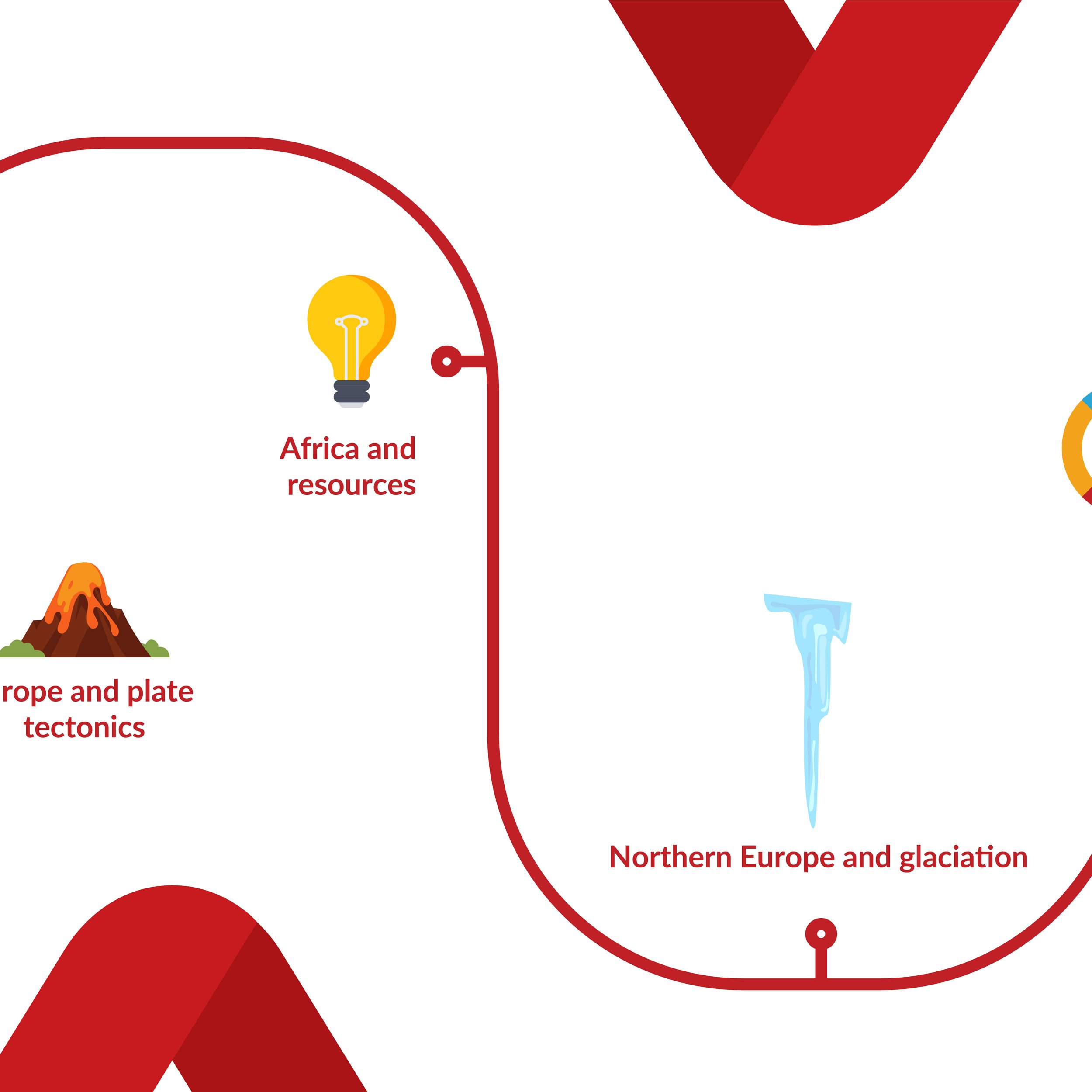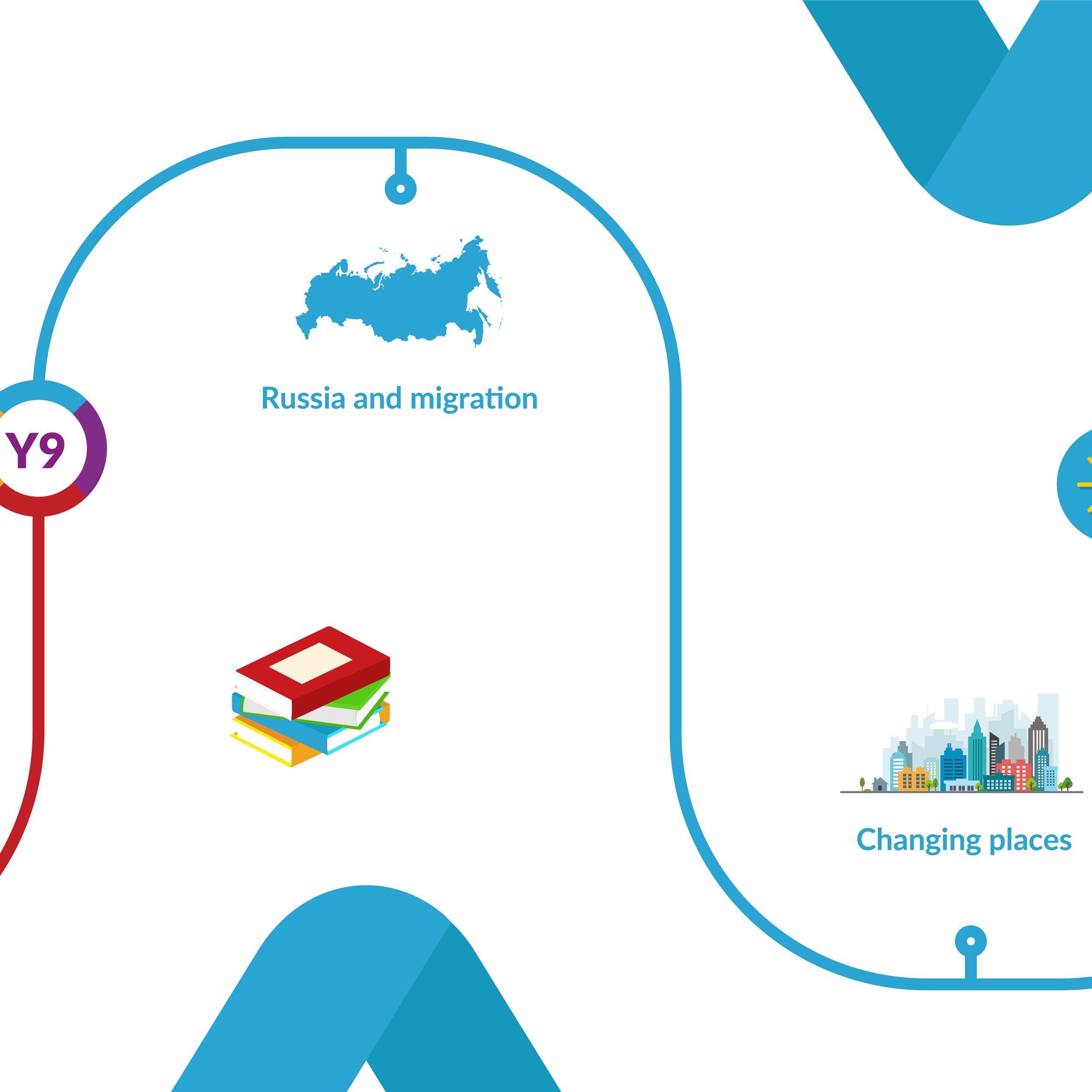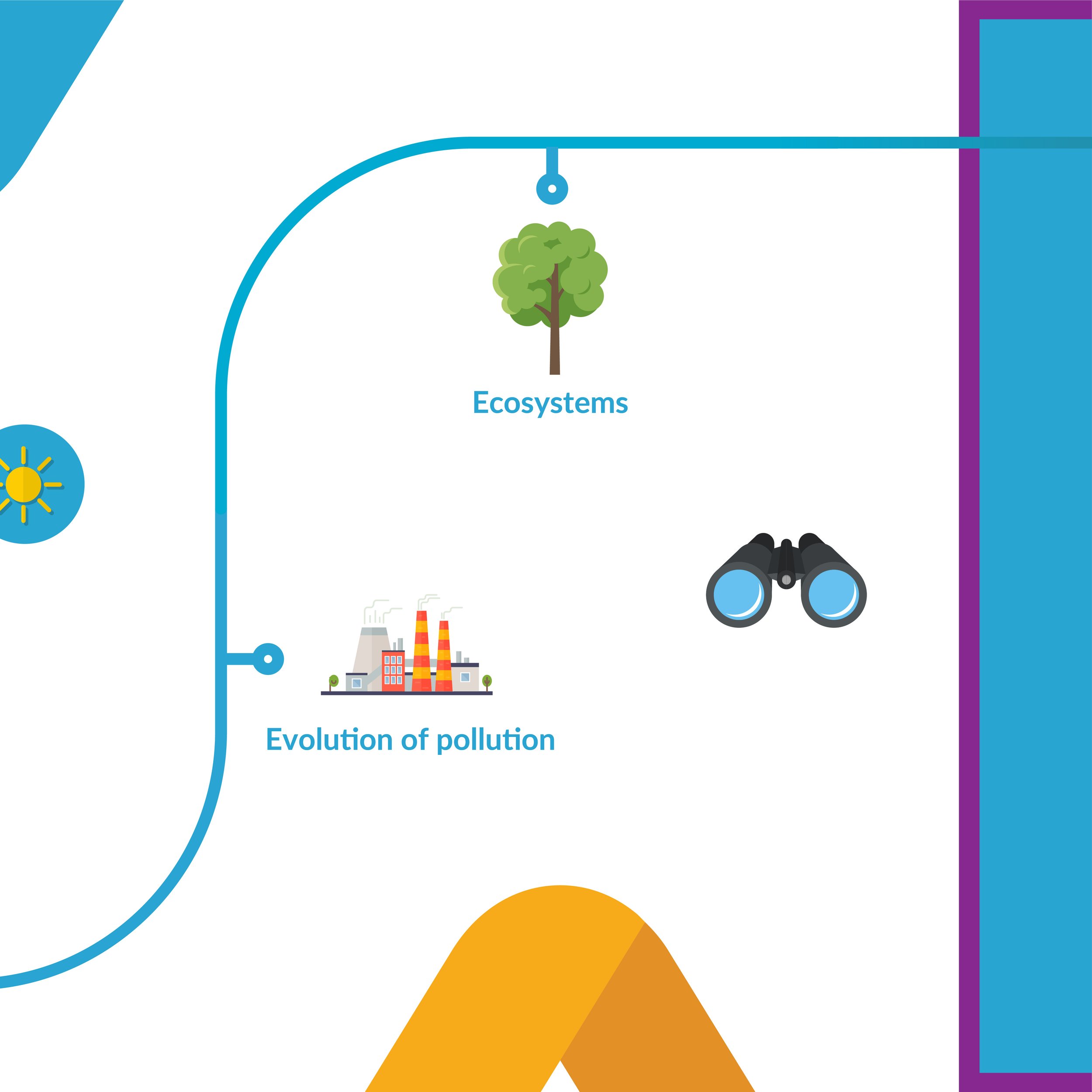
Geography
Year 8
Topic 1
Europe and Plate Tectonics
-
Our Europe and Plate Tectonics unit will build on key mapping skills from Year 7 are a specific focus of lessons 1 and 2.
The remaining unit loosely models GCSE style learning whereby students look at a specific issue, followed by a case study example.
A second issue and case study then provides contrast. Challenges and opportunities are addressed overtly to enable students to see that both positive and negative effects can ensue.
Lesson design for the unit ensures students build both their geographical vocabulary, but also revisit key skills and concepts from Year 7.
-
In this unit, students will explore tectonic events in two contrasting locations (Italy and Iceland):
The biotic and abiotic characteristics of each study location.
The contrasting living conditions of the two locations, exploring differences in biodiversity, climate and tectonic activity.
How do plate tectonics work?
What were the causes and effects of two contrasting tectonic events?
What were the responses to two contrasting tectonic events? Students will create their own survival kit.
What are the opportunities of living near volcanoes?
-
Please ensure your child is keeping up to date with current world affairs, particularly natural hazards like volcanoes, earthquakes, tropical storms and extreme weather events in the UK.
Homework is set every two weeks for year 7 on Microsoft Teams – please ensure your child is completing this work to the best of their ability.
-
Topic 2
Asia, Population & Development
-
Location & Mapping.
Asia’s biotic and abiotic characteristics.
Population challenges in China & Singapore.
Contrasting approaches to population control.
Measurements of development.
Consequences of development in India & Bhutan.
-
Population Distribution.
Population pyramids.
Population Policies; incentives & disincentives.
Development Indicators;
Birth Rate, Death Rate, Infant Mortality Rate, Life Expectancy, GNI per capita, GNH.
-
All lesson resources are posted in FILES-CLASS MATERIALS on your child’s GEOGRAPHY TEAM.
Weekly homework is posted on TEAMS.
Watch the news together (Newsround on BBC is great!).
“First News” an excellent weekly newspaper subscription which covers the news in a student-friendly format.
Talk to your child about their learning. Can they summarise their most recent Geography lesson?
-
Topic 3
Africa; Resources and Development
-
Africa; resources and development is concerned with introducing pupils to the continent of Africa as a key area of geopolitical concern. The main ideas that will be covered in the module include:
Examining the future of energy as a key human resource and the movement from fossil fuels to renewable energy, with a particular focus on solar power in Morocco.
Keeping up with population demand as Africa’s population booms; geopolitical analysis of Africa and sustainable solutions.
Food and water resources – The impacts of climate change and human activity on the retention of these.
Basic geographical skills will be brought into the topic, including cartographical understanding and graphing.
-
The ideas pupils will understand and the words they will be able to use:
Evaluating different types of energy production; renewable vs non-renewable.
Resources as a cause of conflict in Africa: water, energy and food.
Water scarcity; Importance of water for Low Income Countries (LICs).
Food insecurity in Africa; Malnutrition; Human and physical activity causing these.
Desertification; What it is, why it is a growing problem.
Examining fair trade and evaluating the effectiveness.
-
As this topic is contemporary keeping up to date with current affairs in the news will be invaluable.
Resources and homework will be provided on Teams and it is important that these are completed on time and to a good standard.
There are useful exhibitions about Africa and the legacy of British colonialism in the Royal Armouries in Leeds and the Bagshaw Museum in Batley.
-
Topic 4
Northern Europe and Glaciation
-
Location & Mapping.
Northern Europe’s biotic and abiotic characteristics.
Formation of glaciated landscapes.
Conflict & management of glaciated landscapes.
Formation of river landscapes.
Conflict & management of river landscapes.
-
Glaciated landscapes; processes and landforms.
River landscapes; processes and landforms.
Conflict.
Management.
-
All lesson resources are posted in FILES-CLASS MATERIALS on your child’s GEOGRAPHY TEAM.
Weekly homework is posted on TEAMS.
Watch the news together (Newsround on BBC is great!).
“First News” an excellent weekly newspaper subscription which covers the news in a student-friendly format.
Talk to your child about their learning. Can they summarise their most recent Geography lesson?
-

